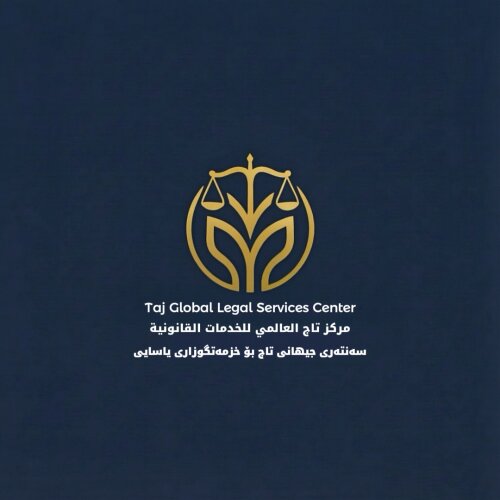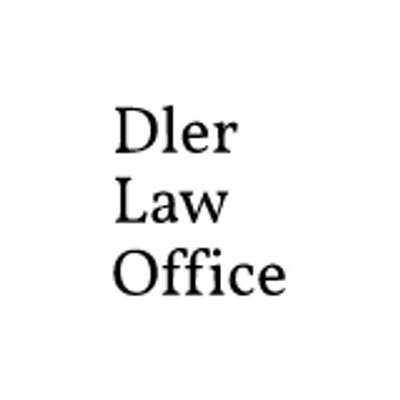Best Appeal Lawyers in Erbil
Share your needs with us, get contacted by law firms.
Free. Takes 2 min.
List of the best lawyers in Erbil, Iraq
About Appeal Law in Erbil, Iraq
The city of Erbil, based in the Kurdistan region of Iraq, operates under a legal system that is largely influenced by French civil law, Islamic Sharia law, and customary law. The appeals process is a crucial part of the judicial system, offering an avenue for persons or entities dissatisfied with a court decision to seek review and potential change of the verdict. An appeal can be lodged against court decisions at different levels, up to the Supreme Court of Iraq.
Why You May Need a Lawyer
Legal counsel is critical when dealing with any aspect of law, but particularly so during the appeals process. If you believe that the court made an error in its judgement, a lawyer can help you determine if the grounds for an appeal exist. Similarly, if you are facing an appeal brought on by the opposing party, a lawyer can offer guidance and representation, helping you understand the processes. Finally, navigating the complexities of appeal law in Iraq requires knowledge and skill, which a lawyer specialising in this area would have.
Local Laws Overview
Erbil operates in line with the legal system of the Republic of Iraq and upholds certain autonomies granted under the constitution of the Kurdistan Region. Among the key laws significant to appeals, the Iraqi Code of Civil Procedure provides directions on how appeal matters should be handled. These include details like permitted grounds for appeal, timelines for filing notices of appeal, and rules for presenting evidence. Further, the Kurdistan Region has its own court system, and relevants laws and procedure may vary. Understanding the intersection of federal and regional law related to appeals is paramount.
Frequently Asked Questions
1. What is the duration within which one can file an appeal?
Timelines can vary depending on the specific case and the court where the original decision was made. Generally, it is advisable to consult with a lawyer promptly after a judgement to ensure adherence to appeal timelines.
2. Can I represent myself in an Appeal?
While it is legally possible, it is generally discouraged due to the complexity of appeal laws and the risk of making critical mistakes. Hiring a lawyer increases your chances of a successful appeal.
3. Do all cases have rights to Appeal?
No, not all cases may be appealable. Certain legal decisions are final while others can be reconsidered. A lawyer can provide you with advice regarding the potential for appeal in your case.
4. What happens if I lose an appeal?
If you lose an appeal, the original court's decision stands. In some instances, a further appeal at a higher court may be possible. It is crucial to consult your lawyer about the possibilities after losing an appeal.
5. How long does the appeal process take?
The duration of the appeal process depends on many factors, such as the complexity of the case and the backlog of the court. Every case is unique and timelines can widely vary.
Additional Resources
The Kurdistan Regional Government website provides legal resources that may be useful. Other key resources include the Iraq Legal Database and the United Nations Assistance Mission for Iraq (UNAMI) which can provide insights into Iraqi and regional law. Local legal aid organizations and law firms also provide resources and help.
Next Steps
If you believe you need to appeal a legal decision in Erbil, Iraq, the first step is to seek competent legal advice to understand your options. Once you select a legal professional, they will guide you through the process, including preparation of necessary documents and representation during appeal hearings. Your lawyer will also communicate and negotiate with the appellate authorities on your behalf.
Lawzana helps you find the best lawyers and law firms in Erbil through a curated and pre-screened list of qualified legal professionals. Our platform offers rankings and detailed profiles of attorneys and law firms, allowing you to compare based on practice areas, including Appeal, experience, and client feedback.
Each profile includes a description of the firm's areas of practice, client reviews, team members and partners, year of establishment, spoken languages, office locations, contact information, social media presence, and any published articles or resources. Most firms on our platform speak English and are experienced in both local and international legal matters.
Get a quote from top-rated law firms in Erbil, Iraq — quickly, securely, and without unnecessary hassle.
Disclaimer:
The information provided on this page is for general informational purposes only and does not constitute legal advice. While we strive to ensure the accuracy and relevance of the content, legal information may change over time, and interpretations of the law can vary. You should always consult with a qualified legal professional for advice specific to your situation.
We disclaim all liability for actions taken or not taken based on the content of this page. If you believe any information is incorrect or outdated, please contact us, and we will review and update it where appropriate.











